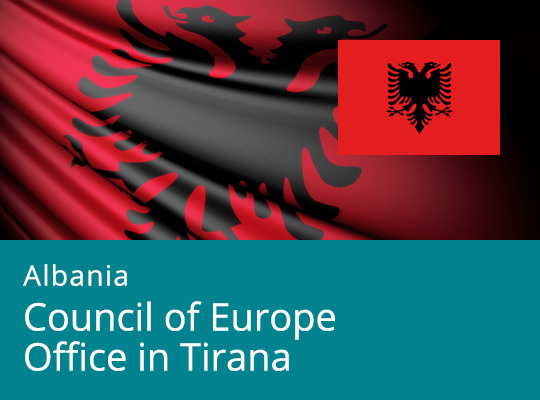ROMACTED: Promoting Good Governance and Roma Empowerment at Local Level
Countries: Albania, Bosnia and Herzegovina, Kosovo*, North Macedonia, Montenegro, Serbia and Turkey
Funding: European Union and Council of Europe
Implementation: Council of Europe
Duration: 36 months
Objectives
The general objective is to build up political will and sustained policy engagement of local authorities to enhance democratic local governance and to build up capacity and stimulate the empowerment of local Roma communities to contribute to the design, implementation and monitoring of plans and projects concerning them.
Specific objectives:
- to empower Roma community - on the individual level (assisting people to practice their basic rights and to expand their capacity and skills), as well as on the community level (assisting people to get organised to voice out their interests around community problem solving);
- to improve and expand the institutions’ commitment, capacities, knowledge and skills in working for Roma inclusion, putting in practice the concepts of good governance;
Target Groups
The target groups of the project are local public administrations (the elected representatives and relevant officials) and the Roma communities from the selected municipalities. They are also the first short-term beneficiary group of the project. Overall the project will target 50 municipalities.
Final beneficiaries
The mid- to long-term beneficiaries are the Roma population and the population of the municipality in general.
Expected results
Support to local authorities for ensuring openness, transparency and equity in dealing with local plans and budgets will lead to inclusive local plans and resource allocation (including Roma needs);
Enhanced capacity-building through training and coaching has a positive impact on public administration for delivering quality services to all citizens (including Roma citizens);
Municipality regulations and practices have an impact on the participation and empowerment of Roma: Information is available, there is recognition of the Community Action Group, and participation is effective.
Community Action Group interventions will have a positive impact on presenting choices to be transformed into actions that will result in increased ability of ordinary Roma citizens to assess their needs, contribute to the development of local public projects, watch-over their implementation, and monitor the local public budget.
The result can be summarized as such: Increased responsiveness and accountability of local government/ administration through a strengthened participation and representations of the Roma community.
Main activities
All Programme activities and incentives are meant to support strategic interventions (training, coaching, the implementation of participatory working cycles, advocacy actions, etc. during key moments of the municipal cycles: planning, budgeting, local decisions, projects etc.) which influence the attitudes, behavior and actions of the local actors, mainly local administration and targeted Roma communities.
The Programme will adapt its actions and activities to each beneficiary and to each selected location from these countries, in order to fit in the policy cycle and to the dynamics and reality of each municipality, thus bringing an additional input to existing policies and practices for an effective and more inclusive functioning.
One of the leading guidelines in the methodology of the Programme is that participation in local governance can only be effective if it is context-appropriate. Thus, preliminary mapping, assessment, baseline survey and research are done in each selected municipality so as to facilitate the adaptation of the Programme and its support and monitoring of the process.
*This designation is without prejudice to positions on status, and is in line with UNSCR 1244 and the ICJ Opinion on the Kosovo Declaration of Independence




